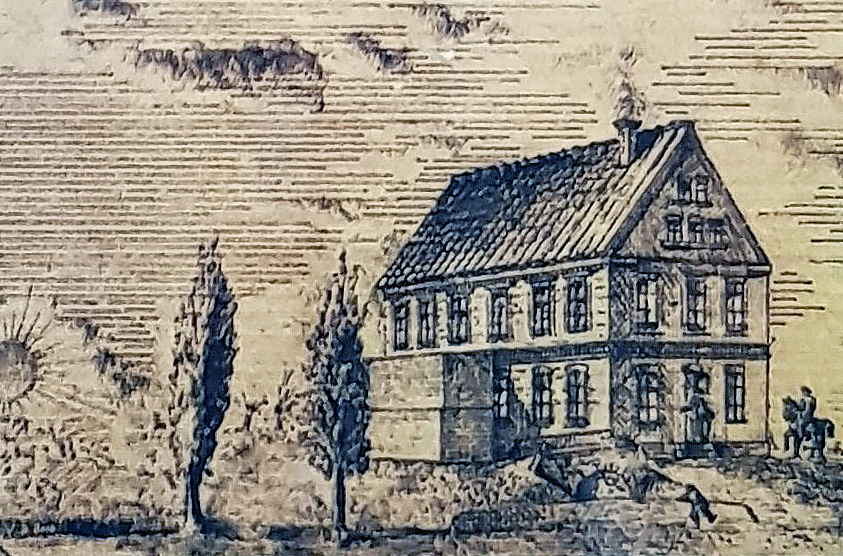With the continuous use of the Neuhaus castle complex, its surroundings gradually developed under Bishop Simon III. (officiating 1463-98), its surroundings, in which middle-class trades settled, gradually developed into the princely residence town. These basic craftsmen, who supplemented the court's self-sufficiency from within the town, probably included bakers, tailors, butchers, brewers, cobblers and blacksmiths as early as the 15th century.
Credit: Neuhaus municipality, course of the River Pader within the municipality with ring ditch, mills and dye works, 1850s (basis: original cadastral map of 1830, Flur V, Kreis Paderborn, Amt für Geoinformation, Kataster und Vermessung, edited by M. Ströhmer 2019)

![„Situation der Mühlen des Bodenstab [= „Roggenmühle“] und des Tüllmann [= Walkmühle] bei Neuhaus“ 1849 (LA Detmold, Regierung Minden, I U Nr. 660, unfol.) „Situation der Mühlen des Bodenstab [= „Roggenmühle“] und des Tüllmann [= Walkmühle] bei Neuhaus“ 1849 (LA Detmold, Regierung Minden, I U Nr. 660, unfol.)](https://paderpedia.de/wp-content/uploads/elementor/thumbs/Abb.-29-scaled-plbd33fd2hvnzp6dssr8bd8frfzlrowyo8wvt0bx1c.jpg)













